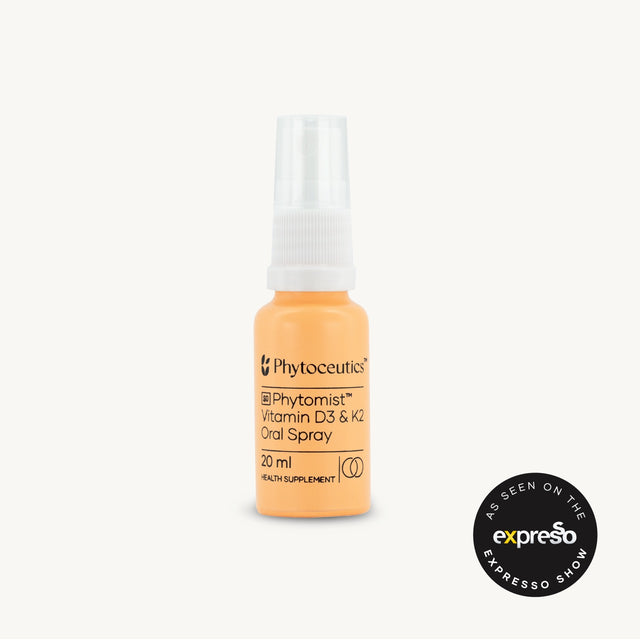In periods of intense growth and development, a child’s body undergoes complex biochemical changes, requiring an adequate intake of all essential nutrients. Among these, magnesium stands out as a vital mineral. Acting as a cofactor in more than 300 enzymatic systems, magnesium is indispensable for numerous physiological processes – from DNA and RNA synthesis to energy production and muscle contraction [2].
While calcium and vitamin D often dominate the conversation around bone health, magnesium is equally essential for paediatric wellness – especially for children in growth spurts or those engaged in sports [1].
The Essential Roles of Magnesium in Childhood
Magnesium’s influence is widespread and profound, touching nearly every aspect of a child’s development.
1. Healthy Bones and Teeth
More than half of the body's magnesium is stored in bones, supporting the structural framework essential for development [2]. It also aids in the absorption of calcium and the activation of vitamin D, and without sufficient magnesium, calcium can’t be safely deposited, potentially leading to weaker bones and dental issues [1].
2. Energy and Metabolism
Children are naturally active, and keeping pace with their energy demands requires efficient cellular metabolism. Magnesium plays a key role in converting food into energy, ensuring kids stay energised throughout their adventures [1].
3. Muscle and Nerve Function
Magnesium regulates the flow of calcium into muscle cells, which is essential for proper contraction and relaxation. Deficiency can lead to cramps, muscle fatigue, or restless legs. It also supports nerve impulse transmission, keeping the nervous system working smoothly [1,12].
4. Mental Development and Concentration
Magnesium is involved in neurotransmitter synthesis, which is critical for learning, memory, and attention. Symptoms of magnesium deficiency in children can manifest as irritability, poor concentration, sleep disturbances, fatigue, and mood swings. [1,12].
5. Reducing Stress and Improving Sleep
Magnesium exerts a calming effect on the nervous system by regulating stress hormones. It promotes relaxation and sleep, which are vital for emotional health and overall well-being [1,12].
Signs of Magnesium Deficiency in Children
Early signs of magnesium shortfall can be subtle, but awareness is key. Children may experience:
-
Decreased appetite, nausea, or vomiting
-
Fatigue, weakness, and poor energy
-
Muscle spasms or cramps, twitching
-
Mood disturbances, irritability, hyperactivity, anxiety
-
Concentration difficulties, insomnia, sleep disruptions
-
Behavioural changes like sadness or hyperactivity [1,2,7,12]
Magnesium and Children’s Cognitive Health
Research suggests a clear link between low magnesium intake and behavioural challenges. For example, a large population-based cohort study of more than 680 adolescents found that higher dietary magnesium intake at ages 14 and 17 was significantly associated with fewer externalising behaviours, including attention problems, aggressiveness, and delinquency [8].
Magnesium deficiency is also particularly relevant in the context of Attention-Deficit/Hyperactivity Disorder (ADHD). Early studies reported that up to 95% of children with ADHD were magnesium-deficient, suggesting that supplementation could be beneficial for the vast majority [9]. More recently, a clinical trial in 25 children with ADHD (aged 6–16 years) demonstrated that 72% were magnesium-deficient, and lower magnesium levels correlated with poorer IQ and increased hyperactivity. In this study, children randomised to receive magnesium supplementation (200 mg/day) in addition to standard therapy showed significant improvements in hyperactivity, impulsivity, inattention, opposition, and overall behaviour compared with those on standard therapy alone [10].
Magnesium for Young Athletes
Active children, especially those participating in sports, have even greater magnesium needs. Exercise increases magnesium loss through sweat and boosted demand for energy and muscle recovery. Magnesium supplementation supports:
-
Efficient muscle contraction and relaxation
-
Sustained energy production and endurance
-
Quicker recovery by reducing lactic acid buildup and inflammation
-
Replenishment of magnesium stores for athletes who perform long-term strenuous exercise [11,13].
Why Kids Don’t Always Get Enough Magnesium
Several factors contribute to inadequate intake:
-
Picky eating – magnesium-rich foods like leafy greens, legumes, and nuts may be unappealing to kids.
-
Dietary patterns – dominated by processed foods and refined grains often lack essential nutrients.
-
Unpalatable supplements – many kids resist pills or powders with noticeable tastes.
Magnesium-Rich Foods for Children
Whole foods rich in magnesium include:
-
Leafy greens (e.g., spinach, kale)
-
Nuts and seeds (e.g., almonds, pumpkin seeds)
-
Legumes (e.g., beans, lentils, chickpeas)
-
Whole grains (e.g., brown rice, oats, quinoa)
-
Fruits (e.g., bananas, avocados)
- Dark chocolate (in moderation) [2, 14 ]
Encouraging colourful, whole-food diets helps lay the foundation for adequate intake.
Supplementation: Bridging the Nutritional Gap
When dietary intake falls short, supplementation can help – but taste and tolerability are key concerns. Child-friendly alternatives include chewable tablets or transdermal sprays [1]. Dietary gaps are common, particularly in picky eaters or active kids. Pairing a nutrient-rich diet with a thoughtful supplementation strategy can ensure children receive the magnesium support they need in a simple and effective way.
Magnesium is a cornerstone of children’s health, playing a critical role in building strong bones and teeth, sustaining energy and metabolism, supporting optimal muscle and nerve function, and fostering both cognitive development and emotional well-being. Ensuring adequate magnesium intake is essential for helping children thrive physically, mentally, and emotionally.
This content is for informational purposes only and does not constitute medical advice. Always consult with your healthcare provider before starting any new supplement, especially if you are pregnant, nursing, have a medical condition, or are taking prescription or chronic medication.








